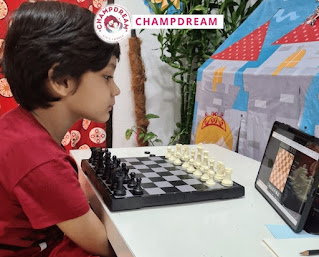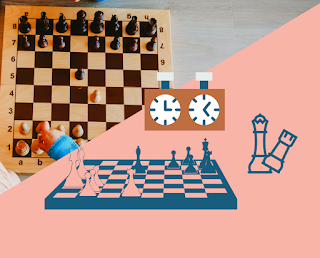Chess- A game that never repeats itself
Chess-A game that never repeats itself
ChampDream believes that as we grow, it becomes more vital to exercise our brains. Constant mental and physical training helps to stay healthy and fit.Children who play chess regularly will have sharper memory in the future than their peers who do not. The reading performance of 53 primary school pupils who participated in a chess program was tested for a study.
Benefits of Teaching Chess
- By linking chess to a topic area in the education curriculum, teachers can engage student attention and can also stimulate critical thinking in and out of the classroom.
- A concentration on acquiring talents that can be applied outside of chess, such as maths, literature, science, and engineering.
Benefits of Playing Chess
1. A way to socialize:-This sport constantly demands you to compete against another player. Playing with others promotes conversation, connection, and social relationships. This sport helps you socialize if you go to tournaments or choose to play in clubs.
2. A way to have fun:-
Chess is a fascinating sport because it never repeats itself, never has two equal matches, and never bores you. Chess is a lot of fun, and it's even better when you win!
3. Enhances your learning ability.:-
It raises your learning level because it necessitates the application of numerous tactics and a great deal of logical thinking. The more you practice this sport, the more you will learn about it. This will also aid you in other areas of your life and job.
4. Improves one's imagination and creativity.:-
This sport also aids in the development of your imagination and creativity. Chess has an infinite number of moves and lines to play with.
Chess players' intellect is continually put to the test. As a result, playing chess regularly will help you improve your inventiveness and intelligence in a variety of activities.
5. Enhances memory.:-
Chess is one of the most difficult sports to master. To collect and store information, your memory must have a large capacity.
With so many different versions and possible movements for each game, players must remember and adhere to certain techniques to gain an advantage. As a result, it aids in memory enhancement.
6. Improves patience and concentration.:-
Chess improves attention and patience. Your chances of winning are highly reduced against your opponent if you lack both of these attributes.
This sport necessitates the recall of numerous concepts and tactics, therefore if you are unable to concentrate and be patient, your chances of winning may reduce.
With so many different versions and possible movements for each game, players must remember and adhere to certain techniques to gain an advantage. As a result, it aids in memory enhancement.
6. Improves patience and concentration.:-
Chess improves attention and patience. Your chances of winning are highly reduced against your opponent if you lack both of these attributes.
This sport necessitates the recall of numerous concepts and tactics, therefore if you are unable to concentrate and be patient, your chances of winning may reduce.
Final Thoughts
Chess in education can act as an important instructional tool. Chess is used to engage and equip students with academic and 21st-century skills, whether as a curriculum subject or as a cross-curricular and interdisciplinary tool.Chess serves as a tool to increase students’ concentration, improvement in Mathematics, and deep critical thinking in and out of the classroom because it ties to every area of the curriculum.
What do you think?
Now we do like to hear from you- Does your child play chess?
- What benefits does your child gain from playing chess?
- How did your child learn to play chess?
- Does your child’s school curriculum include chess?
- What is your child’s favorite indoor sport?





Comments
Post a Comment